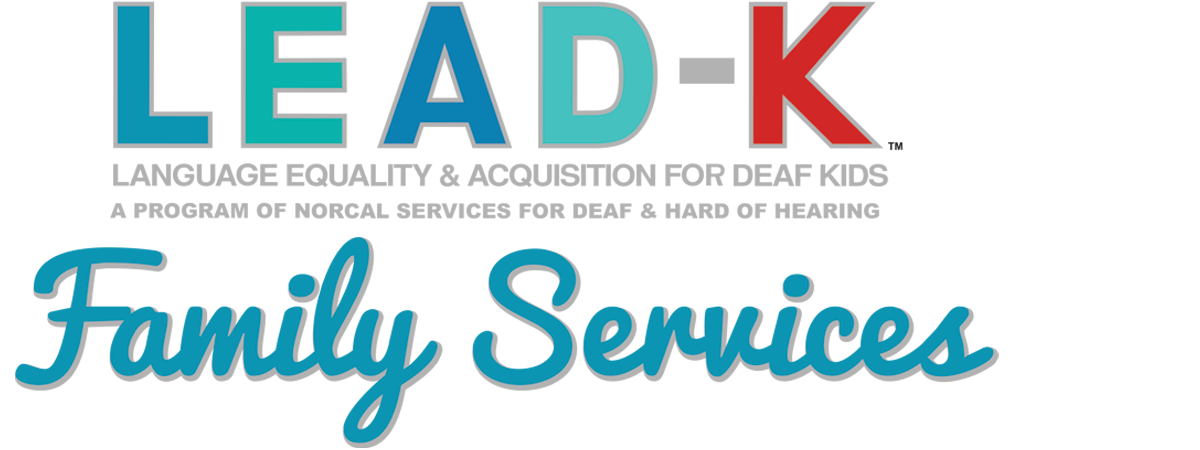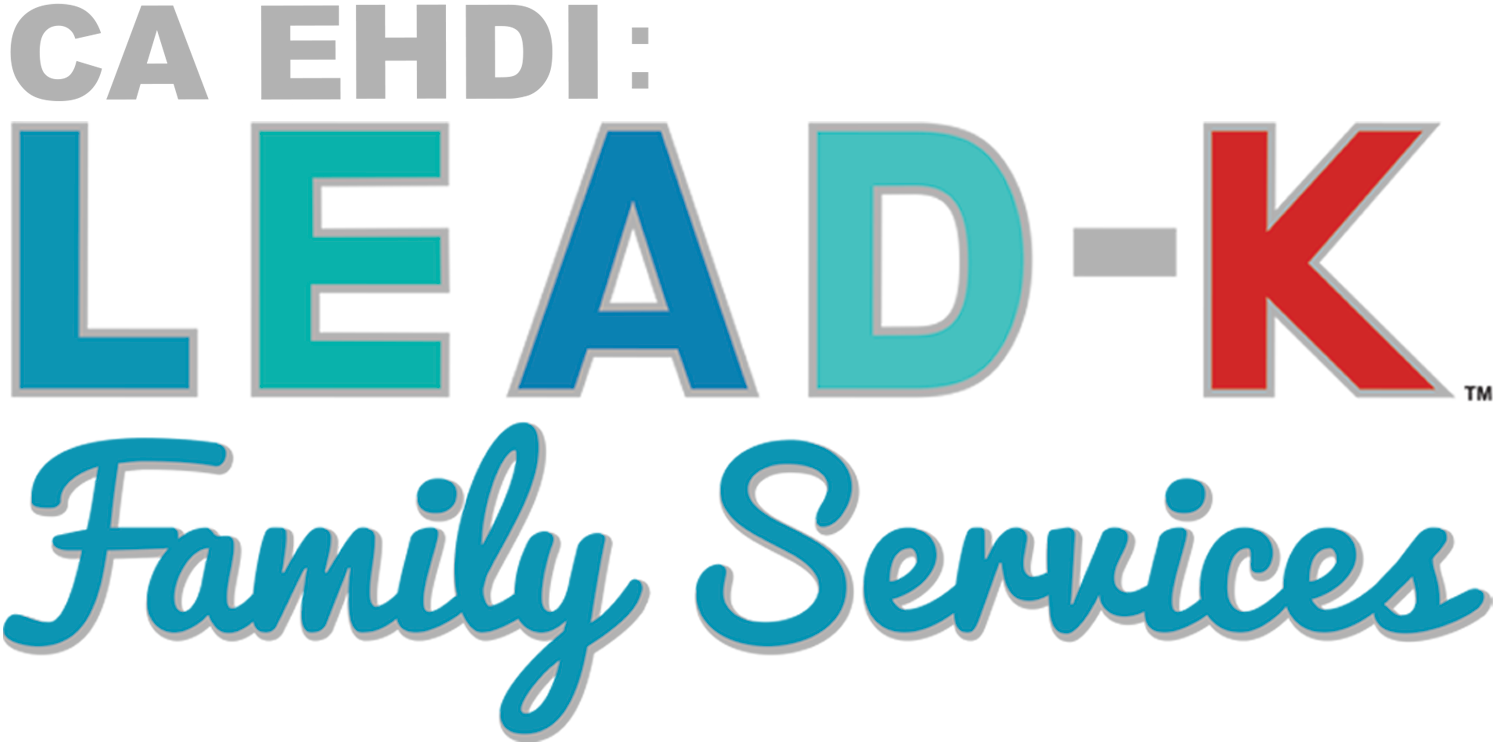Partnerships with families
California Early Start Services
Early Start is California’s name for programs that provide services to infants and toddlers (birth to three) with disabilities, and their families. LEAD-K Family Services will refer you and your baby to your local Early Start program serving families with Deaf and Hard of Hearing children. Then, the Early Start staff will contact your family and make an appointment to meet with your family. A teacher of the Deaf and a speech/language pathologist will be part of the team that meets with your family. The Early Start teacher must be specially trained and qualified to work with young Deaf and hard of hearing children.

Home Vists

Assessments

Individualized Family Service Plan (IFSP)
Language Milestones


Deaf Coaching
Parent Mentors


Audiology

Speech and Language
Playgroups


Transactions to an IEP
FAMILY RESOURCES


Best Practices for Deaf/hard of hearing Early Start

California Early Start Directory

Position Statement on Access to Language for Students who are Deaf or Hard of Hearing



National Association of the Deaf
Parents are children’s first teachers.
Parents are children’s first teachers. Through play, communication, and touch, parents convey love to their child as well as information about the world. During everyday interaction parents teach their children names of objects, how things work, what is safe, and a myriad of other lessons. These early experiences prepare a child for social-emotional development, literacy and higher level thinking. When parents find out their child is Deaf or hard of hearing, they may be unsure of what to do. Most parents want help. The early intervention system which includes regular home visits for families with Deaf/hh children birth to three is designed to do just that.
Best Practices for Early Start for Infants and Toddlers who are Deaf or Hard of Hearing
Early Start teachers can…
- Work with you to identify priority needs for the child and family and evaluate the child’s strengths and current developmental skills. This information will be used to write an Individual Family Services Plan. This document is like a road map. It will guide you and the infant/family specialist as you go about learning and growing with the baby.
- Work closely with your family to address priority goals you have set for your- selves and your baby. She will work with you to evaluate the progress you are making and to set new goals.
- Support you in communicating with your baby and encourage your baby’s development through natural daily routines.
- Assist you in identifying sources of support, if this would be of help to you.
- Recognize your expertise as your baby’s parent and strive to develop a comfortable partnership with you.
- Become a resource to you as you search for answers and how best to help your baby to learn.
- Help you and your family communicate with your baby and support in evaluating how your child is responding. All children learn differently.
- Watch as you interact naturally with your baby, pointing out the many positive things you already do to support your baby’s learning and suggesting additional techniques to encourage the baby’s learning.
- Facilitate a smooth transition to preschool.
- Work closely with your family to address priority goals you have set for yourselves and your baby, evaluate the progress you are making and set new goals.





